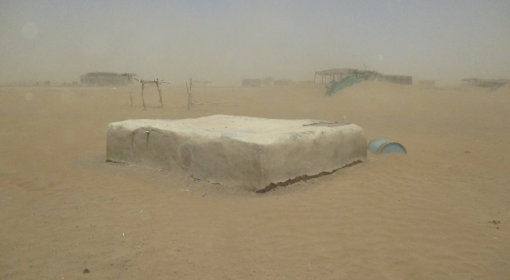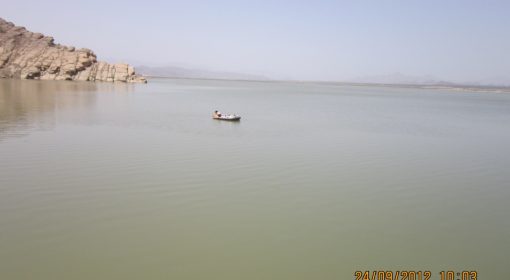Posted by Matthijs Kool and Frank van Steenbergen
October 14, 2013

In search for a better life and comfort for families left behind, thousands of Africans cross the Mediterranean or the Red Sea every. The journey costs them approximately USD 3000 – a fortune for a poor family. Captive to extortion, turned away by coast guards or merely drowned, many never make it. In fact 15,000 people die in the Mediterranean while trying to cross the waters.
Earlier this week, two incredibly tragic (but not unusual) incidents brought it all to light – the sinking of two boats close to Lampedusa, Italy, that were carrying 34 and 339 victims respectively.
Here is what it is like on one of these boats, as it emerges from a recent report by the European Council (‘Lives Lost in the Mediterranean Sea: Who is Responsible?) :
Day 1
At the night of Saturday 26 March, a group of 72 sub-Saharan men, women and children boarded a small inflatable rubber dinghy, possibly not much more than 7 meters long, in order to escape from Libya. When the passengers boarded the dinghy, their provisions were taken away from them by the smugglers. One of the survivors said, “it was completely overcrowded. Everyone was sitting on everybody else. I had someone sitting on top of me, and this person had someone sitting on top of him. They don’t really care how many people can fit into the boat all they want is to get the money from each person”. It seems that amongst the passengers they only had a box of biscuits and a few bottles of water. Once the dinghy was fully inflated it left in the darkness of the night. They were told by the smugglers that 18 hours of navigation would take them to Lampedusa.
Day 2-9
On Sunday 27th, after well over 18 hours of navigation, Lampedusa was nowhere to be seen. In view of the situation, they decided to use a satellite phone to call Father Zerai, an Eritrean Priest living in Rome, whose number had been given as a contact person in case of an emergency.
A number of hours after their exchange with Father Zerai, a military helicopter appeared and hovered above them. The helicopter then left the boat. It, or another helicopter returned within a short time and used a rope to lower down small bottles of water, in a six-pack format, together with packets of biscuits. The military personnel in the helicopter indicated to the people on the boat that they would return, and instructed those on the boat not to change their current position.
When several more hours passed and there was no sign of a rescue, they decided to attempt the onward journey. The “captain” managed to navigate for a number of hours using the sun to provide direction. The boat soon ran out of fuel. At this point it was stranded in the middle of the Mediterranean. There was no food and almost no drinking water left.
Roughly the fifth or sixth day at sea, many people started dying. By the tenth day, around half of the people had died and had to be thrown overboard due to the smell.
Approximately Day 10
The survivors all concur that on what could have been day 10 of their trip they drifted close to a very large military vessel. Survivor: “Some were looking through binoculars and others were taking pictures of us. The ship remained at a distance, so the people in the boat started shouting and waving their hands. “They’re just watching that there are dead children and other bodies.” After a short while, the military vessel sailed away, abandoning the stranded boat.
After day 10
The boat drifted with the current and with the wind. The death toll kept rising, and on about the fifteenth or sixteenth day of their trip only 11 persons were still alive. “We were just waiting for our own time or turn to die.” remembered one of the survivors.
On 10 April, their boat was washed up on the rocks close to Zilten, a Libyan town situated 160 km east of Tripoli and 60 km west of Misrata. By then only 11 people were left from the group of 72. They were immediately arrested. Their possessions were confiscated, including wedding rings, necklaces, photos, documents and SIM cards.
Look at the picture of one that got away (below). This vendor from Senegal made it – now peddling wares on a Mediterranean beach in Sardinia, eking out a hard life as reward of dangerous crossing the sea. The summer sales are reasonable but there is a long cold winter with hardly any business that is hard to survive.

Crossing the water and surviving however is usually not the end of the misery. Here is another shocking fact: there are – according to a recent report of the European Parliament 880,000 slaves in Europe. (see links below)
A quarter of them end up working in the sex industry. Others perform unskilled farm labour, work in sweat shops, or even train to do petty crime. Most of them are trafficked into Castle Europe; most of them have no proof of identity. If at all they have passports, they are confiscated by crooked middlemen who threaten to harm their family members back home to keep their ‘modern slaves’ in check.
So around 15,000 die at sea every year and 880,000 end up as slaves. These are big numbers. Add this to the 1000’s of Eritreans kidnapped for ransom by the Bedouin in the Sinai as they try to cross to Israel, and the 1000’s of Ethiopian raped and extorted from in Yemen while trying to sneak into Saudi Arabia.
Compare this with terrorism and anti-terrorism activities, and the enormous layout of human resources, finance and media attention on drones, surveillance, and internet spying. There aren’t really large numbers of victims to speak of here. And yet we see these things leading to a misguided and cruel world. An apt metaphor is the image of the army ship that looked at the misery of the boat people for some time, and then turned away.
It is time we form new and genuine priorities. Exit Obama and Cheney. Exit Cameron and Jack Straw. Exit the whole misplaced security industry.
Links to the European Parliament report on modern-day slavery:
- http://www.spiegel.de/wirtschaft/unternehmen/fast-eine-million-sklavenarbeiter-leben-in-der-eu-a-927563.html
- http://nos.nl/op3/artikel/561887-880000-slaven-in-europa.html
- http://www.tert.am/en/news/2013/10/13/eu-report/
{jcomments on}


